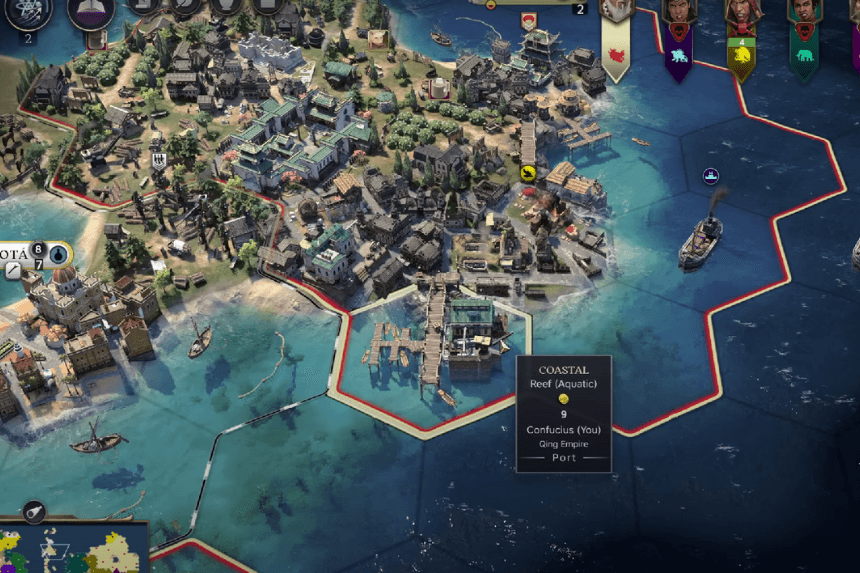Ports are vital structures in Civilization 7, enabling trade, boosting your economy, and even paving the way for industrial expansion. Connecting distant lands and unlocking crucial trade routes, Ports become especially important in island-heavy maps or when managing far-flung factories. This guide will explain how to build Ports, highlighting their benefits and strategic importance in your quest for civilization dominance.
Port in Civilization 7
You can now build Ports on rivers that ships can travel on. These Ports, available in the Modern Age, give you extra gold and more slots for resources. They’re also important for your economic progress. Resources in Factories only earn you “Railroad Tycoon Points” if the city with the Factory is connected to your capital. This connection can be made by either a Rail Station or a Port.
How to Build a Port
If you have factories in faraway lands, Ports are essential. They keep your railroad trade routes running smoothly, so you still earn trade points even over long distances. Ports are also the only way to trade with other civilizations if you’re playing on a map with lots of islands (an Archipelago map). In Civilization 7, you can build a Port once you’ve researched the Steam Engine technology. This tech becomes available in the Modern Age. Your city also needs to be on the coast to build a Port.
Ports are really useful! They connect cities across water to your capital, let you assign more resources to that city, and generate a base of 5 Gold. You’ll also get an extra Gold for every river, coastal tile, or Wonder next to the Port. Finally, building a Port unlocks the ability to build a Factory in that city.
VR Port in Civilization 7
Big news for Civilization fans! 2K and Firaxis Games are bringing Sid Meier’s Civilization VII to VR, specifically the Meta Quest 3. This is a huge first for the series! While we don’t have an exact date yet, it’s expected sometime this spring. It’s worth noting that this VR version will be exclusive to the Quest 3 and 3S, leaving out other VR headsets. The VR development is in the hands of PlaySide Studios, an Australian company experienced in VR games. A cool feature is the ability to seamlessly switch between VR and mixed reality while playing. The VR version will also let you experience key moments in your civilization’s history in a cool way. Imagine seeing detailed, miniature versions of your greatest achievements, like building Wonders or completing the Archives, right there in VR.

